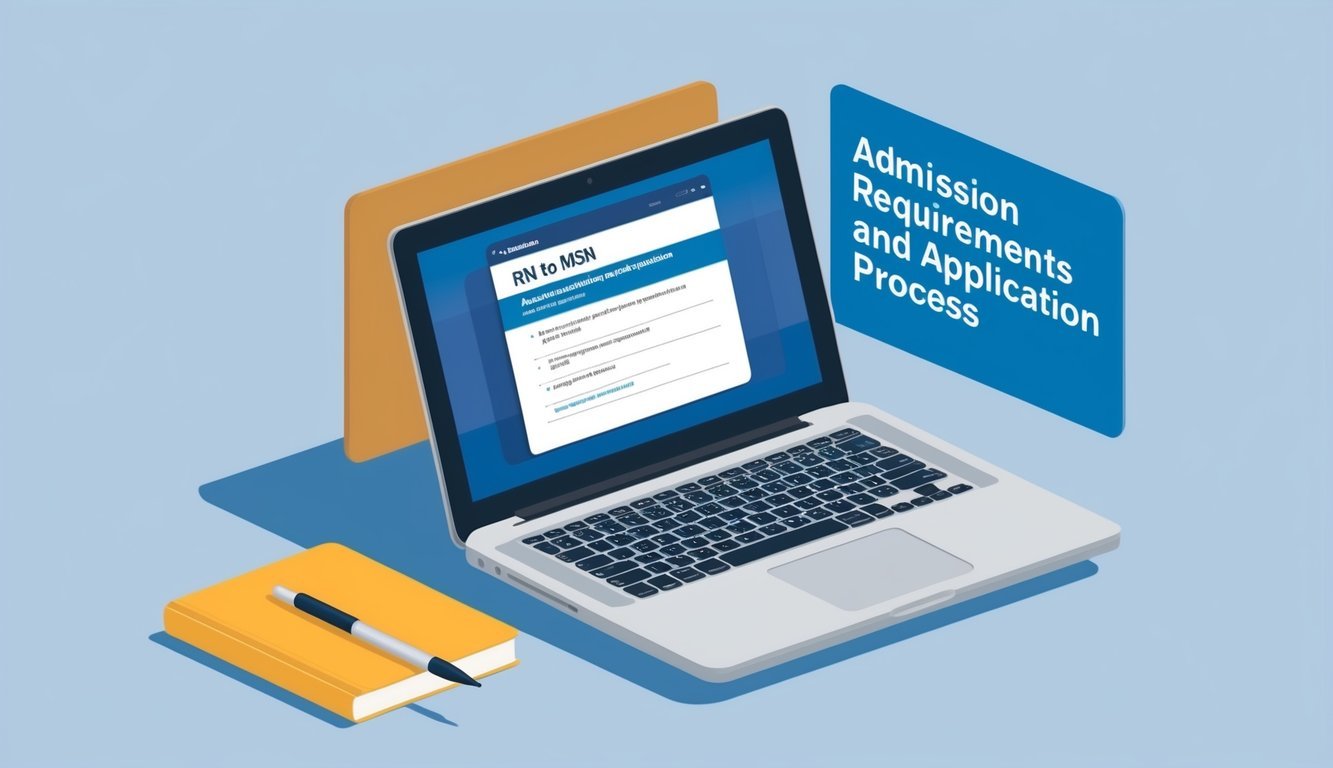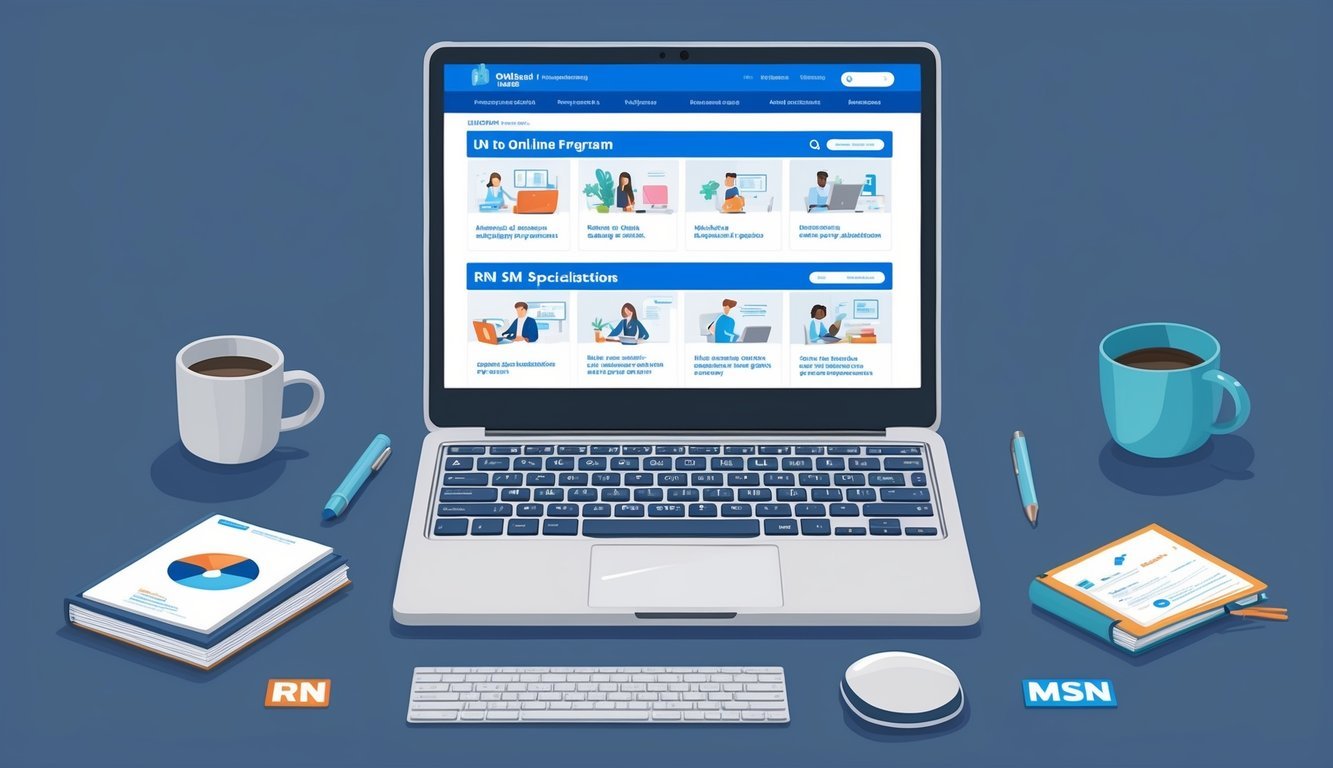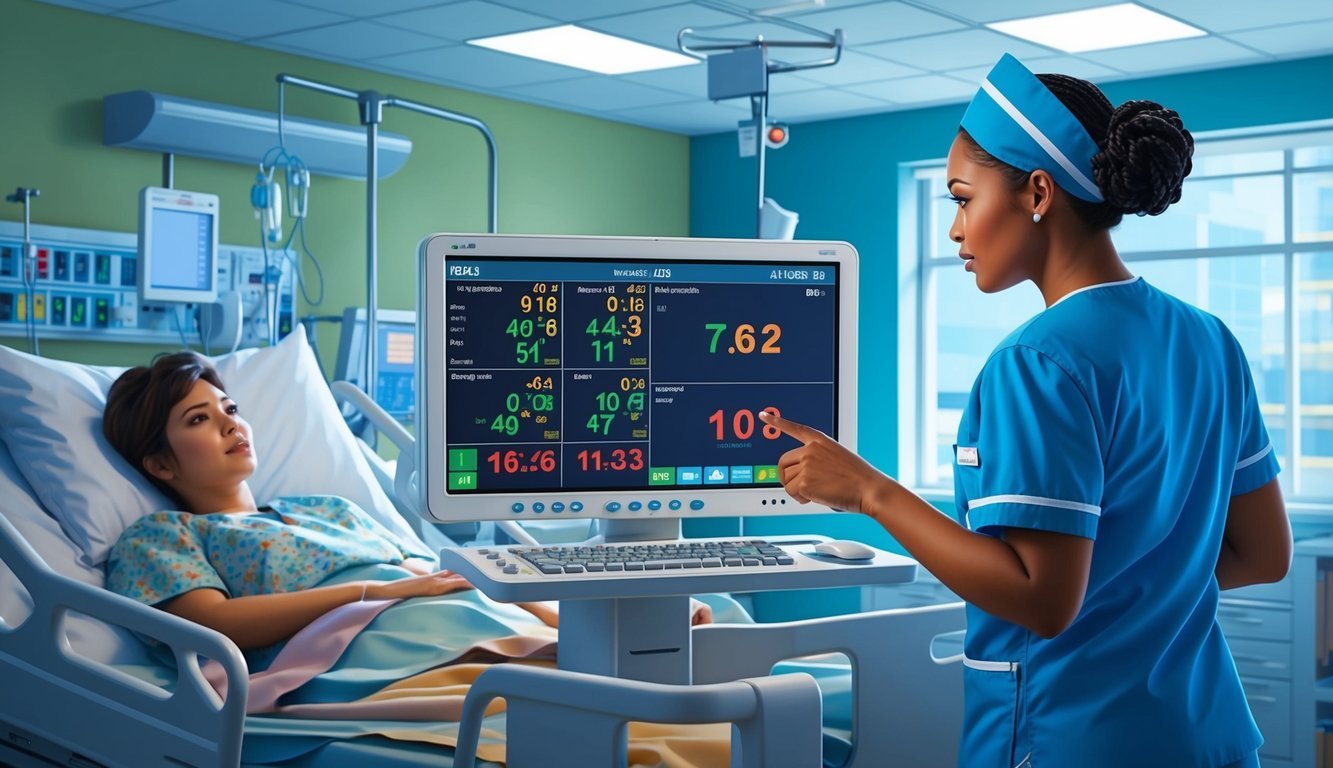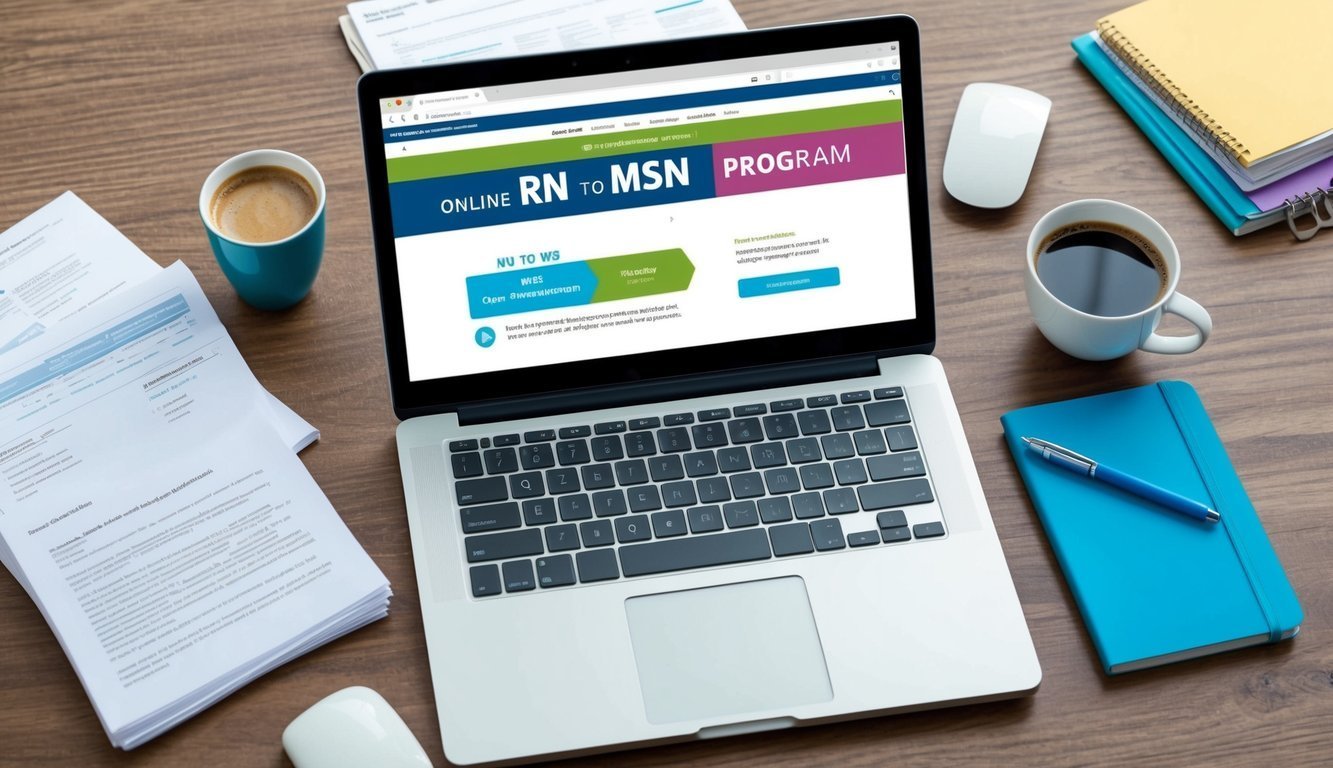If you’re a registered nurse looking to advance your career, enrolling in an RN to MSN program online can be a transformative step.
These programs allow you to earn both your Bachelor of Science in Nursing (BSN) and Master of Science in Nursing (MSN) without needing to attend classes on campus.
This provides flexibility to balance your professional and personal commitments.
With a growing demand for advanced practice registered nurses, pursuing further education opens doors to numerous career opportunities in healthcare.
Online RN to MSN programs are designed to fit your schedule, enabling you to learn at your own pace while gaining essential skills in nursing education or management.
Many reputable institutions offer these programs, accommodating varying learning styles and financial situations.
You can explore options at WGU or Chamberlain University to find a pathway that aligns with your goals.
As you consider your options, think about the specialized tracks available in RN to MSN programs, such as nursing education or leadership.
By entering an online program, you not only enhance your knowledge but also position yourself as a leader in the ever-evolving field of nursing.
Understanding RN to MSN Programs
RN to MSN programs are designed to help registered nurses advance their education and careers by obtaining a Master of Science in Nursing (MSN) degree.
These programs bridge the gap between your existing nursing qualifications and the advanced knowledge required for leadership roles in healthcare.
Program Overview
RN to MSN programs typically cater to RNs holding an Associate Degree in Nursing (ADN) or a Bachelor of Science in Nursing (BSN).
The curriculum focuses on advanced nursing concepts, leadership, and specialized practice.
Key components often include:
- Core Courses: Covering subjects like health policy, research, and advanced nursing practices.
- Specialization Tracks: Options may include nursing education, nursing informatics, or clinical leadership.
- Program Length: Most programs can be completed in 2 to 3 years, depending on whether you attend part-time or full-time.
Many institutions offer fully online formats, allowing you to balance your studies with work and family commitments.
Look for programs with CCNE accreditation to ensure high educational standards.
Accreditation Importance
Accreditation is crucial when selecting an RN to MSN program.
Attending an accredited nursing school ensures that your education meets recognized standards, enhancing your job prospects and educational credibility.
Key Accreditation Types:
| Type | Description |
|---|---|
| CCNE | Commission on Collegiate Nursing Education |
| ACEN | Accreditation Commission for Education in Nursing |
Graduating from an accredited program often allows you to apply for financial aid and is typically a requirement for advanced nursing roles.
Moreover, accreditation can impact your eligibility for further education, such as pursuing a Doctor of Nursing Practice (DNP).
Ensure that the program you choose is recognized for its quality, so you can confidently advance your nursing career.
Admission Requirements and Application Process

Understanding the admission requirements and application process for RN to MSN programs is essential for a smooth transition into advanced nursing education.
This section outlines the minimum eligibility criteria you need to meet and the documentation you will require during the application process.
Minimum Eligibility Criteria
To qualify for an RN to MSN program, your foundational education typically includes an Associate Degree in Nursing (ADN) or a Bachelor of Science in Nursing (BSN).
Key points to consider:
- Licensure: You must hold an active registered nurse (RN) license.
- GPA: Most programs require a minimum GPA of 3.0 on a 4.0 scale.
- Experience: Some institutions prefer candidates with nursing experience.
- GRE: Not all programs require the GRE, but some may use it as a supplementary evaluation tool.
Admissions Documentation
Collecting the necessary documentation is a vital step in the application process.
The following items are generally required:
- Transcripts: Official transcripts from all colleges attended must be submitted.
- Recommendations: Most programs require two to three letters of recommendation from supervisors or educators.
- Personal Statement: A statement explaining your career goals and reasons for pursuing the MSN degree.
- Interview: Some programs may require a personal interview to assess your commitment and fit.
It’s essential to check specific requirements for each program as they can vary considerably.
Properly organizing these documents will streamline your application process and enhance your chances of admission.
For further insights, visit Nurse.org.
Curriculum and Specializations

The curriculum for RN to MSN programs is designed to build on your existing nursing knowledge while introducing advanced concepts that prepare you for specialized roles in healthcare.
You can expect to engage with both core subjects and specific advanced practice areas tailored to your career goals.
Core Subjects
Core subjects in RN to MSN programs often cover essential nursing theories and practices.
You will study topics such as:
- Evidence-Based Practices: Understanding how to apply research to improve patient care.
- Healthcare Policy: Learning about the policies affecting healthcare delivery and nursing practice.
- Curriculum Development: Gaining skills to design educational programs within nursing.
Additionally, courses in Clinical Practice will provide hands-on experience, helping you to integrate theoretical knowledge with real-world application.
You may also encounter subjects focused on Healthcare Statistics, which are crucial for data-driven decision-making in nursing.
Advanced Practice Areas
Advanced practice areas allow you to specialize based on your interests in the nursing field.
Popular specializations include:
| Specialization | Description |
|---|---|
| Nurse Practitioner (NP) | Provides comprehensive care, often focusing on specific populations. |
| Family Nurse Practitioner (FNP) | Offers holistic care for families across all ages. |
| Nurse Midwife | Specializes in childbirth and maternal health. |
| Nurse Anesthetist | Focuses on anesthesia administration during surgical procedures. |
| Psychiatric Mental Health NP | Works with mental health patients to provide therapeutic care. |
| Nursing Informatics | Bridges technology and nursing to enhance patient care and outcomes. |
| Nursing Leadership | Prepares you for management roles in healthcare settings. |
Each specialization includes coursework designed to prepare you for the challenges of that area, ensuring you are well-equipped for a successful career.
Engaging with these topics will enrich your nursing practice and enhance your professional competence.
Clinical Experience and Placement

Clinical experience and placement are critical components of RN to MSN programs.
They provide you with the opportunity to apply theoretical knowledge in real-world settings, enhancing your skills and understanding of patient care.
Integrating Theory and Practice
In RN to MSN programs, integrating theory with clinical practice is essential.
You will engage in clinical hours that allow you to implement evidence-based practices in various healthcare settings.
Typically, BSN programs require about 600 clinical hours, while RN-to-BSN programs need significantly fewer hours, often ranging from 50 to 100 hours.
These clinical experiences can occur in diverse healthcare organizations such as hospitals, clinics, and community health centers.
This exposure helps you develop critical skills in patient care, ensuring you learn to adapt theoretical concepts to practical scenarios.
Regular assessments from preceptors will guide you in refining your approach to patient interactions.
Placement Services
Placement services are designed to support you in securing suitable clinical opportunities.
Programs often work with dedicated placement specialists who facilitate the placement process from the moment you enroll.
This collaboration ensures that you are matched with experiences that align with your career goals.
Clinical placement involves ongoing partnerships with healthcare facilities, allowing for tailored experiences.
Each program may have unique requirements and objectives tailored to your specific specialization, such as the Family Nurse Practitioner (FNP) track. Clinical practice experiences will vary, providing you the chance to work with a wide range of patient populations and conditions, thereby enhancing your clinical competencies.
Career Advancement and Outcomes

Pursuing an RN to MSN program online can significantly enhance your career trajectory in nursing.
With an advanced nursing degree, you open doors to various roles and responsibilities that can lead to higher earning potential and leadership opportunities in the healthcare sector.
Employment Projections
According to the U.S. Bureau of Labor Statistics, employment for advanced practice registered nurses is expected to grow much faster than the average for all occupations.
Specifically, nurse practitioners, clinical nurse specialists, and nurse anesthetists will see a projected growth rate of 45% from 2020 to 2030.
This increased demand is driven by a growing emphasis on healthcare accessibility and preventive care.
As healthcare evolves, leaders in nursing will be crucial in shaping policies and ensuring quality patient care.
Additionally, graduation rates from RN to MSN programs support this trend, with many institutions reporting strong employment outcomes for graduates.
Roles and Responsibilities
With an RN to MSN degree, your career opportunities expand into various advanced roles.
You may pursue positions in nursing administration, become a nurse executive, or focus on leadership and management within healthcare organizations.
The responsibilities associated with these positions can include:
- Managing nursing teams
- Developing healthcare policies
- Overseeing patient care quality
- Implementing best practices in clinical settings
These roles not only require clinical expertise but also leadership skills and administrative acumen.
Engaging in continuous professional development and networking can further enhance your ability to thrive in these roles, positioning you as a pivotal player in the healthcare workforce.
Tuition and Financial Considerations

When pursuing an RN to MSN program online, understanding the costs involved and exploring financial aid options is crucial.
This section provides valuable insights into tuition expenses and available resources to help you manage the financial burden of graduate-level education.
Understanding Tuition Costs
Tuition rates for online RN to MSN programs can vary widely depending on the institution.
Most programs range from $29,125 to $29,400 for the total estimated tuition.
Here’s a simple breakdown of potential costs:
| Expense Type | Estimated Cost |
|---|---|
| Tuition Per Credit | $400 – $1,500 |
| Books and Materials | $500 – $1,200 |
| Fees (Lab, Technology) | $200 – $500 |
Utilizing a Tuition Calculator from the institution can help you gauge exact figures based on your specific program details.
Additionally, consider the overall Cost of Attendance, which includes living expenses and personal costs alongside tuition.
Financial Aid and Scholarships
To alleviate financial burdens, explore various financial aid options.
Many institutions offer graduate-level financial aid, including grants, loans, and scholarships specifically for nursing students.
- Federal Student Aid: You can apply for federal loans and grants by completing the FAFSA.
- Institutional Scholarships: Investigate scholarships offered by your school, which may be based on merit, financial need, or specific criteria.
Another useful resource is Scholarship Databases that compile lists of available opportunities tailored for nursing programs.
Many RN to MSN programs have dedicated financial aid advisors to help you navigate these options and maximize your financial resources effectively.

